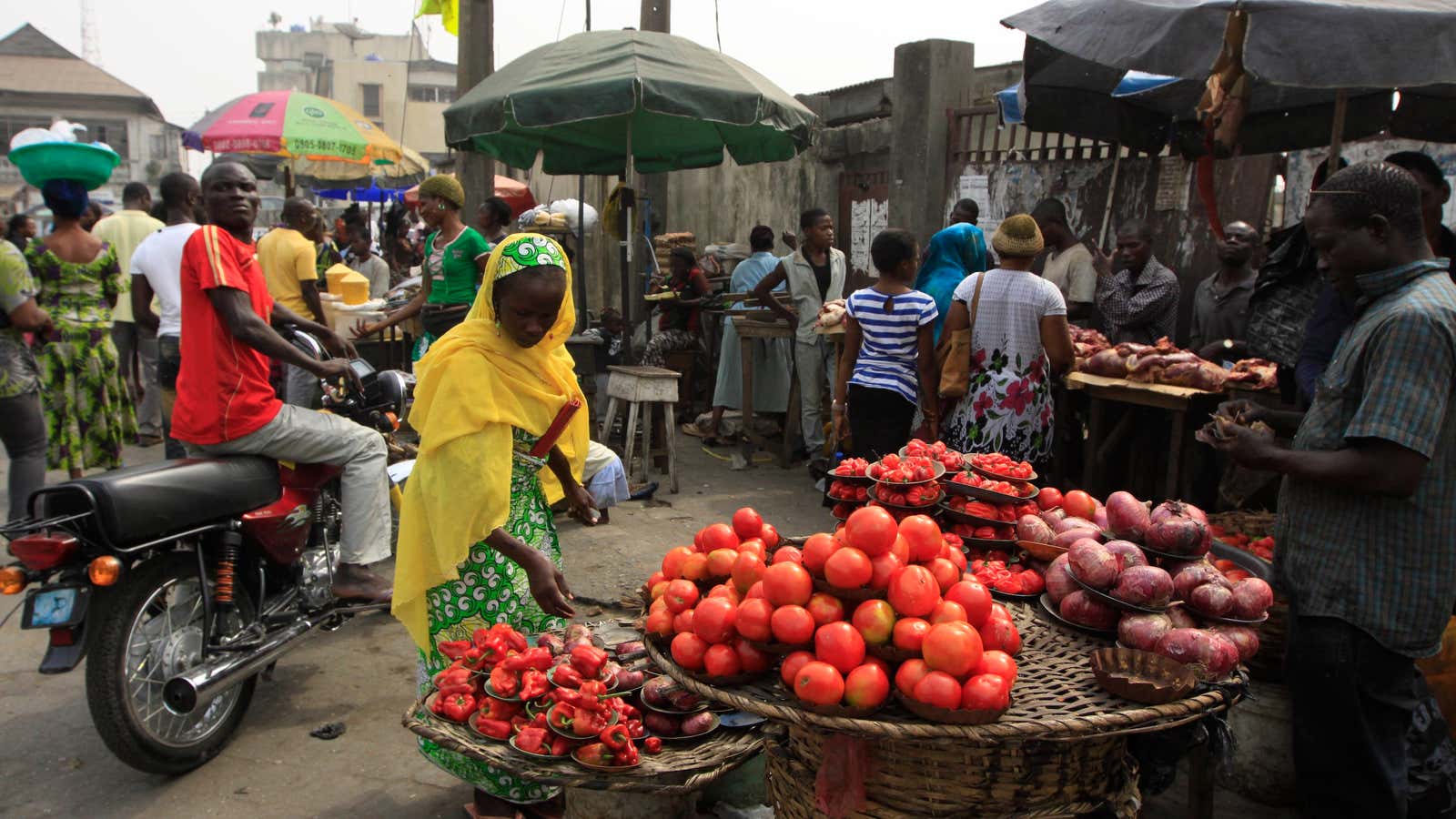The Jan. 2015 announcement of a West African regional task force to counter Boko Haram, combining troops from Niger, Cameroon, and Chad, was greeted with both relief and suspicion in Nigeria.
Throughout the country, news of the force’s activities and gains is reported nearly hourly. In the northwestern city of Kano, itself badly affected by the Boko Haram insurgency, discussing the regional force has become a pastime among traders. The classic advice to “follow the money” has generated a number of theories as to why Nigeria’s neighbors intervened, and why such action was necessary.
Central to the theories of geopoliticians and oil-bugs is the potential oil and natural gas reserves in the Lake Chad basin. Chad and Nigeria had engaged in military skirmishes over that territory in the 1970s, leading many analysts to speculate that Chad was using Boko Haram as a pretext to take over the land.
In 2014, it was reported that the Lake Chad basin may contain as much as 2.32 billion barrels of oil and 14.65 trillion cubic feet of natural gas. The volatility from Boko Haram, however, has prevented international oil companies from exploring this option. The revenue forsaken because of the insurgency, according to these theories, was sufficient to convince Niger, Cameroon, and Chad, to unite against the insurgents.
In agricultural trading towns, however, businessmen and farmers alike offer a simpler explanation. One trader, who travels frequently throughout the northeast, estimated that 80% of businesses had closed in Borno state, 70% in Yobe state, and 50% in Adamawa state. As a result, any international trade throughout the region was stymied, raising prices and affecting livelihoods in neighboring countries.
A government official who works on “improving the investment climate” as a special advisor to a Nigerian parliamentarian, who requested anonymity, tells me that even those who have not closed their doors “are barely surviving.”
“You cannot call what they are doing business,” he says. “They are just merely surviving.”
For the businesses that continued operating, transporting goods became nearly impossible. As a commodities trader in Kano explained to me, “For 40, 60 years, these countries have relied upon Nigeria for their food. The insurgency shut down the roads and no food could get to their countries.”
Prior to the discovery of oil, Nigeria derived the lion’s share of its wealth from its northern states, which have better soil than the south. As a result of the shortages, prices of staple food goods, such as rice, millet, and sorghum, have risen drastically. “These governments know what happens when food becomes expensive,” the commodities trader tells me with a wary eye.
These traders, lounging against huge bags of grain in the Dawanau market in Kano, tell me that it is no coincidence that the regional force prioritized the opening of roads connecting Chad, Cameroon, Nigeria, and Niger. “They just want to make sure that they can keep their people fed and not rioting,” one says as the others nod. A trader of sesame, a major crop in the north, tells me matter-of-factly, “[Chadian president Idriss] Déby used to let Boko Haram set up their camps in Chad. Only when they started affecting the price of the food and the Chadian economy did he care to take action against them.”
Reports that the Nigerian government will fork over 146.2 million naira ($700,000 USD) a month to troops from neighboring Chad and Niger only further fan the flames of rumor as to the material interests of an international task force.
The economic interpretation of the insurgency is not confined to explaining the regional force, however. On a farm in Gizawa, Kano state, farmers explain over plastic bags of harvested tomatoes that the insurgency grew because “someone was making money from it.”
When I asked the group who might be benefiting, a few of the farmers shrug. “The government has allocated all of this money to combat Boko Haram, but the soldiers complain that their weapons are not good enough,” one ventures. “Where is the money? Why have they not bought better weapons?” The traders murmur in agreement.
In the air-conditioned office of a major commodities trading company in the region, who requested anonymity given the sensitivity of the topic, a manager agrees with the farmers’ assessments. “The military elites, some generals and other high ranking officials, have taken the money and not used it on the frontlines,” he tells me, “they have put it in real estate and they are becoming rich men.” As a result of this scheme, he tells me, the Nigerian government could only muster a “lukewarm” response to the insurgents on their own.
As for where the insurgency gets its money, the manager shrugs: “That we do not know.”
“They used to tax the population and businesses, but they have not done so in a few years,” he says. Those who volunteer to be in the insurgency, according to him, “are in it for the money. Boko Haram pays well and is sometimes the only job around.”
Shaking his head, an assistant manager chimes in: “In Nigeria, everyone is chasing their dollar. In all of this, they have politicized lives and tried to make money from them, and it is sad.”
